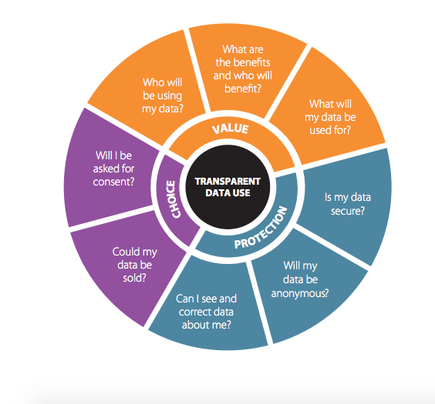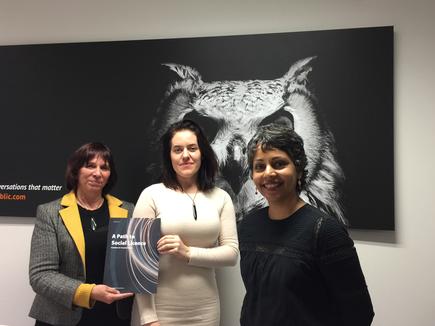8 questions for Kiwi organisations seeking your personal data
- 11 August, 2017 11:50
The Data Futures Partnership has released the eight questions New Zealanders should expect organisations seeking to use their personal data should answer.
The questions are part of A Path to Social Licence: Guidelines for Trusted Data Use, launched by the Parntership, an independent group appointed and funded by the government.
The draft guidelines provide a way for organisations to be transparent about what they want to do with data, in a way that is easy to understand.

Individuals and communities can consider the plan and decide whether or not their trust has been earned. The ultimate goal is trusted data use and social licence.
“Comfort around data use is contextual. Organisations should always aim to proceed with social licence – trusted use – particularly when the data use is novel or affects vulnerable groups,” says Dame Diane Robertson, chair of the Data Futures Partnership Working Group.
“How personal data is used is not always clear to New Zealanders. People want to know how the Government, businesses, not-for-profits and other organisations are collecting and using their data.”

People want to know why the data is being collected, what it is being used for, and who will benefit, whether they will be identified, and whether their data could be sold or shared.
Dame Diane Robertson was joined at the launch by two other members of the working group tasked to draft the guidelines, Figure.NZ founder Lillian Grace and Dr Rhema Vaithianathan, co-director of the Centre for Social Data Analytics at Auckland University of Technology.
The other members of the panel are Tourism New Zealand CEO Stephen England-Hall and former Secretary of the Treasury John Whitehead.
The Data Futures Partnership will work with public and private sector organisations to test and refine the draft Guidelines over the next six months.
“New Zealanders, rightly, have many questions about how their data is collected, used and shared. In order to trust any proposed use of data, they need to hear answers to the questions that matter," says Robertson. "The sorts of things they really want to know are: why the data is being collected, what it is being used for, and who will benefit? They also want to know whether they will be identified, and whether their data could be sold or shared."
To develop the guidelines, the Partnership worked with thousands of New Zealanders to understand how they feel about their data being shared in different situations. These were done through a series of workshops, hui and online sessions.

“Every country is trying to address the same issues as we are,” says Dr Rhema Vaithianathan of AUT, in a report released during the launch.
“The problem is that most countries like New Zealand have something similar to our Privacy Commissioner and the Privacy Act which has done a good job for many years of maintaining people's confidence in the collection and use of their personal data.
“This was thought to be enough but increasingly there is a need for data use to be not only lawful but also trusted. This is a very fast changing environment and there is a balance we need to strike. If we’re too prescriptive in how organisations should collect and use data then we risk making New Zealand unable to take advantage of data use that could really improve people’s quality of life. On the other hand, you want people to be able to trust the way their data is being used.”
She says during the consultation with the various groups, they found many of the people were concerned about how their data was being collected and used.
“We felt the first thing we should do was to encourage organisations to be straight up with people and we found people responded to that well. They understood that data was a resource and they weren’t completely averse to providing their data to organisations to use, they just want transparency about it.”

Send news tips and comments to divina_paredes@idg.co.nz
Follow Divina Paredes on Twitter: @divinap
Follow CIO New Zealand on Twitter:@cio_nz


